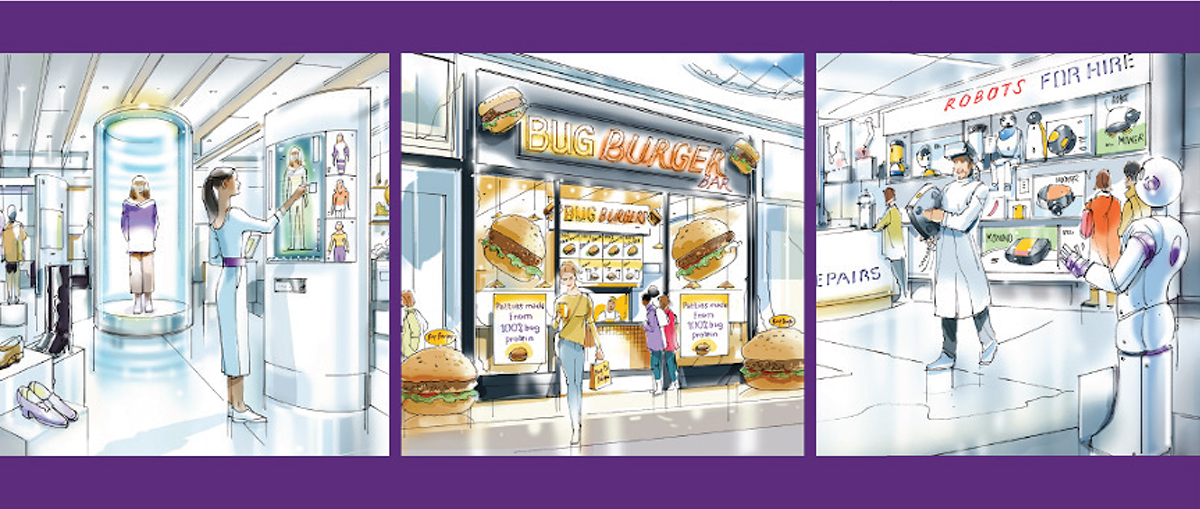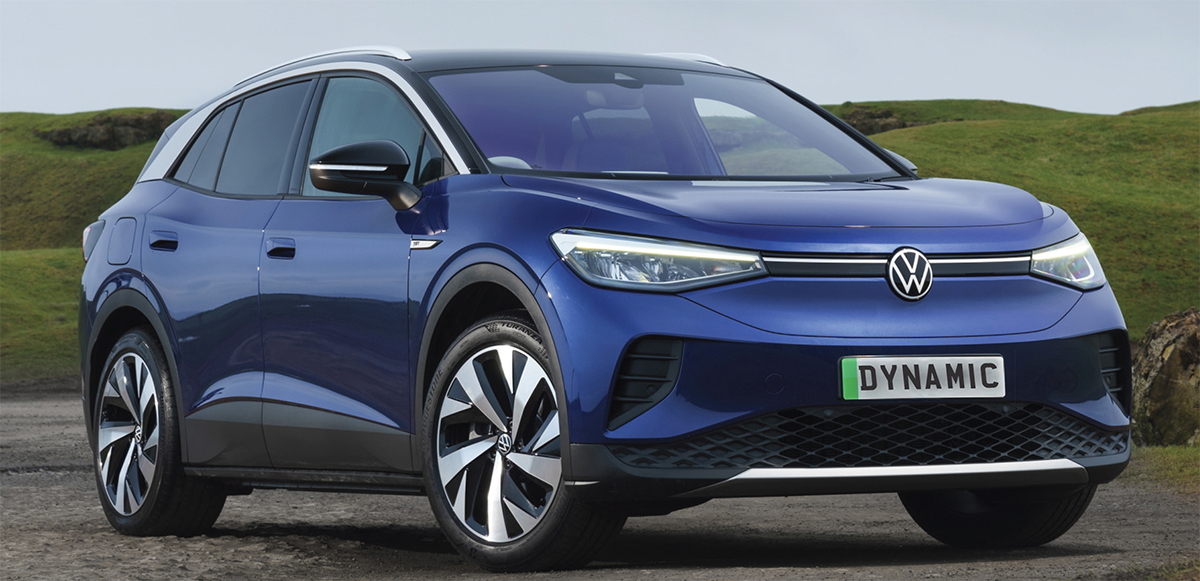
The NatWest Future Businesses Report looks at trends that could revolutionise how we work and live in the next 15 years
Robot repair shops, bug burger bars and smart-tech VR travel agents could be the small businesses of the future, according to the forecasts of a new report released recently that charts how we could live and work in the next 15 years.
In the near future, travel agents could be letting holidaymakers ‘try-before-you-fly’ through virtual reality experiences and the daily commute could take place in high-speed personal travel pods to beat city congestion.
Protein-rich insects served by ‘bug burger bars’ are predicted to become the fast foods of choice with fried locust or a greasy worm burger replacing the late-night kebab, while AI fashion boutiques could use technology to design perfectly made-to-measure clothes.
These are the ground-breaking predictions of the NatWest Future Businesses Report, authored by leading futurist Dr Ian Pearson, consumer business guru Kate Hardcastle MBE, Shivvy Jervis, founder of FutureScape248 – the award-winning human-centred inn-ovation lab – and futurist and author Tom Cheesewright.
NatWest, the UK’s biggest supporter of small businesses, commissioned the report to discover the small businesses and start-ups we could expect to see within the next 15 years. The fascinating visions of Britain in 2036 were put to a poll of 2,000 Brits, who were asked to choose which business predictions they would most like to see become reality.
Robot rental and repair shops (53%), servicing and providing droids and robots used to carry out household chores, is the service forecast to be on offer that Brits most want to become a reality. Robotics is also the industry Brits would most like a job in in future, with over half of those polled (52%) saying they would like to work with robots in the year 2036.
Over half of Brits (56%) agree that helping the environment via sustainable initiatives is the single most important factor when it comes to supporting new businesses.
Almost two thirds (64%) of Brits said their jobs would need to adapt within the next 10-15 years to keep up with new developments, but only 4% said that they thought their job would become totally obsolete.
Almost all Brits polled (94%) agreed that workers are likely to need a more diverse skill set to work in the businesses of the future.
Andrew Harrison, Managing Director for Business Banking at NatWest, said: “As this landscape evolves, NatWest continues to be the biggest supporter of UK small business at all stages of development. From our Dream Bigger programme in schools encouraging young people to explore entrepreneurial mindset; our fully funded Business Builder initiative for early-stage entrepreneurs; and our Entrepreneur Accelerator hubs for high growth, green and diverse businesses, our vision is to help more companies start, scale and succeed.
“At NatWest, we champion the potential of businesses that build tomorrow. The findings from our report demonstrate that many exciting opportunities lie ahead for those with the passion and drive to succeed.”
Leading Futurist Dr Ian Pearson, one of the authors of the NatWest Future Businesses Report, said: “The Report helps to paint a picture of what changes we may see in the business environment over the next 15 years. What was clear to all of us was how a greater interaction with technology is going to revolutionise businesses and trans-form almost all industries. Many of the future businesses we predicted build on technologies that are often already in development, so it won’t be long until some of these futuristic-sounding businesses start appearing on our high streets and business parks.
“One thing the panel all agreed on is this is not the end of our high streets, which will thrive if businesses can offer good enough reasons to go there. Long term, more than 50% of retail will still be in high street shops with predictions like AI tailoring and insect food outlets showing how businesses could adapt in future.”
Contributors to the report also included Barrie Davison, National Sector Head for Healthcare and Education, David Scott, head of retail and leisure, Roddy McLean, director of agriculture, Ian Burrow, head of agriculture and renewable energy, Neil Bellamy, NatWest’s head of technology, media and telecoms and Richard Hill, head of manufacturing and automotive.





